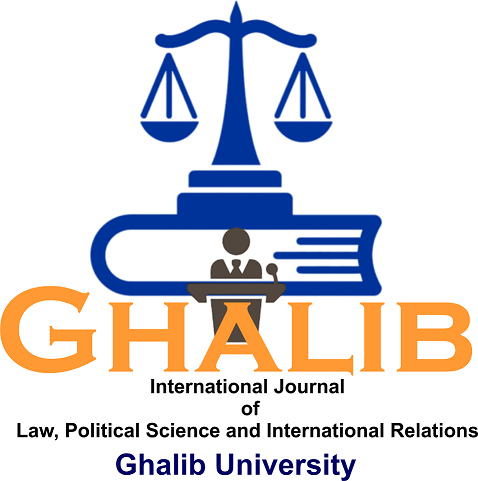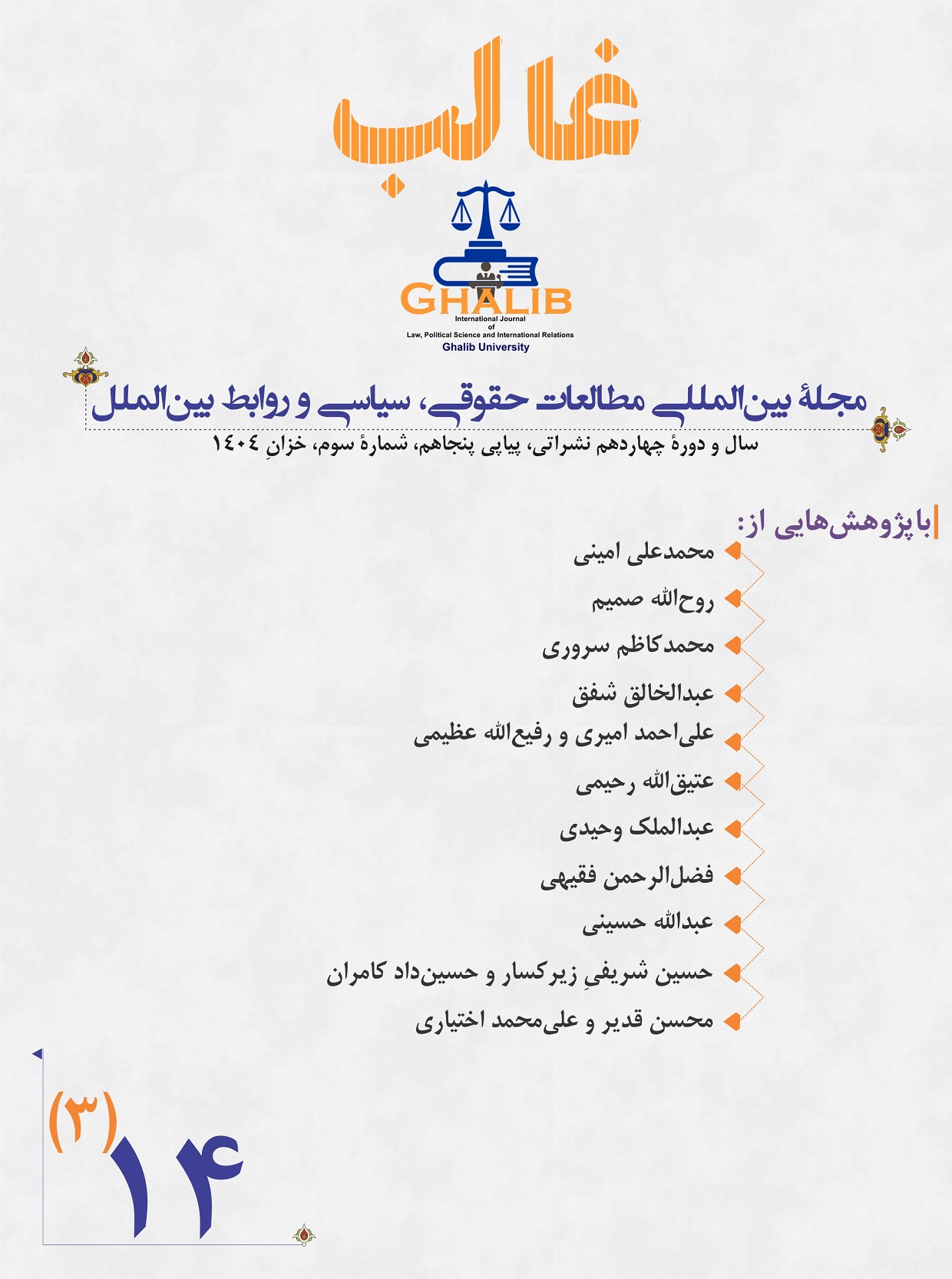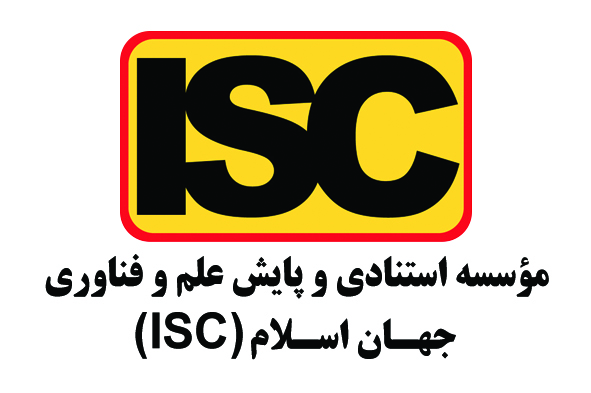مطالعۀ تطبیقی حقوق و مکلفیتهای کارکنان خدمات ملکی در قوانین افغانستان و ایران
DOI:
https://doi.org/10.58342/ghalibqj.V.14.I.3.9واژهگانِ کلیدی:
افغانستان، ایران، حقوق اداری تطبیقی، حقوق کارکنان، خدمات ملکی، مکلفیتهای اداری، نظام پرداختچکیده
سیستم خدمات ملکی بهعنوان رکن اصلی ادارۀ امور ملکی نقش حیاتی در کارآمدی دولتها دارد و تنظیم و اجرای دقیق حقوق و تکالیف کارکنان آن زمینهساز شفافیت، پاسخگویی و کارآمدی اداری است. اهمیت این تحقیق از آنجا ناشی میشود که باوجود قوانین نسبتًا مشخص در افغانستان و ایران، تفاوتهای ساختاری و اجرایی چالشهایی در اجرای کامل قوانین ایجاد کرده و شناخت این تفاوتها میتواند به بهبود عملکرد نظامهای خدمات ملکی کمک کند. هدف پژوهش تحلیل تطبیقی حقوق و تکالیف کارکنان خدمات ملکی در نظامهای حقوقی افغانستان و ایران و ارائۀ پیشنهادهایی برای ارتقای ساختار اجرایی، بهویژه در افغانستان بوده است. پرسش اصلی تحقیق این است که: حقوق و تکالیف کارکنان خدمات ملکی در افغانستان و ایران چه شباهتها و تفاوتهایی دارند و چه اصلاحاتی میتواند کارآمدی این نظامها را افزایش دهد. این پژوهش از روش کیفی با رویکرد تطبیقی بهره گرفته و ابزار گردآوری دادهها شامل کتابها، اسناد قانونی، مقررات، لوایح و مطالعات علمی بوده و محدودۀ تحقیق مقایسۀ نظام حقوقی خدمات ملکی دو کشور افغانستان و ایران بوده است. یافتهها نشان میدهند که اصول استخدام، حقوق مالی و الزامات اخلاقی در هر دو کشور تقریبًا مشابهاند، اما تفاوتهایی در نظام پرداخت، بازنشستهگی، نظارت و ضمانت اجرا وجود دارد و چالشهایی مانند تمرکزگرایی، فساد اداری و پیچیدهگی قوانین بر کارایی نظام اداری هر دو کشور تأثیرگذار است و اصلاح این موارد میتواند به ارتقای کارآمدی خدمات ملکی کمک کند.
سرچشمهها/ منابع
Esmaeili, Mohammad, Najabatkhah, Morteza, & Gorji Azandriyani, Ali Akbar. (2025). Pathology of the salary and benefits system from the perspective of employment justice. Scientific-Research Journal of New Studies in Administrative Law, 7(22), 225–252. https://www.malr.ir/article_714261.html [In Persian]
Danish, Sarwar. (2015). Administrative law of Afghanistan. Kabul: Ibn Sina University Publications. [In Persian]
Rahimi, Salar. (2016). Public administration of Afghanistan. Herat: Quds. [In Persian]
Zwaytgard, Konrad, & Kutz, Heine. (2014). Introduction to comparative law (Elias Noei Mohammad Noei, Trans.). Tehran: Majd. [In Persian]
Tabatabaei Motameni, Manouchehr. (2011). Administrative law. Tehran: Printing and Publishing Organization, Ministry of Culture and Islamic Guidance. [In Persian]
Labor Law of Civil Service of Afghanistan. (2017). Afghanistan: Approved by the National Assembly of Afghanistan. [In Persian]
Civil Service Management Law. (2007). Iran: Approved by the Islamic Consultative Assembly. [In Persian]
Karimi, Mahmoud, Vaezi, Seyed Mojtaba, & Faqih Habibi, Ali. (2021). Capacities and implementable patterns in Iran’s administrative system for applying the new public management model. Administrative Law, 9(29), 195–218. https://qjal.smtc.ac.ir/article-1-939-fa.html [In Persian]
Mohammadi Tamaki, Abdul Ali. (2011). Administrative law of Afghanistan. Tehran: Erfan. [In Persian]
Regulation on the Conduct of Civil Service Officers. (2006). Iran: Approved by the Council of Ministers. [In Persian]
Hedavand, Mehdi. (2017). Comparative administrative law. Tehran: SAMT. [In Persian]
Hemmati, Mojtaba. (2022). Scope and exceptions of the Civil Service Management Law and Labor Law: Challenges and solutions. Scientific-Research Journal of New Studies in Administrative Law, 4(11), 243–274. https://doi.org/10.22034/mral.2022.539410.1193 [In Persian]
Council of Ministers. (2023). Regulation on promoting professional ethics in the administrative system (Approval No. 236541/T61065, dated March 11, 2023). Iran: Administrative and Recruitment Organization. https://shenasname.ir/salamat/60800-آیین-نامه-ارتقای-اخلاق-حرفهای [In Persian]
United Nations Development Programme Afghanistan. (2022). Capacity building in the civil service sector. United Nations Development Programme. https://www.undp.org/afghanistan
International Labour Organization. (2022). Employment in Afghanistan in 2022: Labour market changes post-August 2021. Geneva: International Labour Organization. [PDF file]
Independent Administrative Reform and Civil Service Commission, Islamic Republic of Afghanistan. (2023). Annual report: Achievements and challenges. Kabul: Independent Administrative Reform and Civil Service Commission. https://www.developmentaid.org/donors/view/147711/independent-admintrative-reform-and-civil-service-comission-afghanistan
Ministry of Labour and Social Affairs, Islamic Republic of Afghanistan. (2023). Strategic plan for social protection and workforce development. Kabul: Ministry of Labour and Social Affairs. https://aop.gov.af/en
Zubair Rased. (2023, January 5). Civil service reforms in Afghanistan: A study of Independent Administrative Reform and Civil Service Commission (IARCSC) since 2017 [Working paper]. SSRN. https://papers.ssrn.com/sol3/papers.cfm?abstract_id=4316057
Administrative Office of the President, Islamic Emirate of Afghanistan. (n.d.). Official website. Retrieved September 12, 2025, from https://aop.gov.af/en
Supreme Audit Office of Afghanistan. (n.d.). Organization profile. Retrieved September 12, 2025, from https://www.devex.com/organizations/supreme-audit-office-of-afghanistan-133047
Seyed Siami Namini. (2020). The new public management: Administrative reform in Iran. SSRN Electronic Journal. https://doi.org/10.2139/ssrn.3534437
Ahmad Razini, Mohammad Dehghani, & Neda Vahidi. (2024). Structural resistance to administrative reform in Iran. Journal of Iranian Public Policy, 12(1), 35–52. https://jmr.usb.ac.ir/article_3507.html
United Nations Development Programme. (2022). Civil service salary structure in fragile states: The case of Afghanistan. United Nations Development Programme. https://www.undp.org/afghanistan
International Labour Organization. (2022, January). Employment prospects in Afghanistan: A rapid impact assessment (ILO Brief). Geneva: International Labour Organization. https://www.ilo.org/media/7886/download
Independent Administrative Reform and Civil Service Commission, Islamic Republic of Afghanistan. (2023). Monitoring report on civil service reforms. Kabul: Independent Administrative Reform and Civil Service Commission. https://www.developmentaid.org/donors/view/147711/independent-admintrative-reform-and-civil-service-comission-afghanistan
Administrative Office of the President, Islamic Emirate of Afghanistan. (2024). The challenges of decentralization in Afghanistan. https://www.aopnews.com/taliban/the-challenges-of-decentralization-in-afghanistan/
The World Bank. (2024). Singapore’s civil service: A model for efficiency and integrity. https://www.worldbank.org/en/country/singapore/overview
Organisation for Economic Co-operation and Development (OECD). (2021). Public employment and management in South Korea: Reform strategies. Paris: OECD Publishing. https://www.oecd.org/content/dam/oecd/en/publications/reports/2020/08/the-2018-2021-working-time-reform-in-korea-a-preliminary-assessment_6d52ea72/0e828066-en.pdf
Min Thant Han. (2019, August). Analysing the effectiveness of civil service training course: A case study on Central Institute of Civil Service of Myanmar Union Civil Service Board [PDF]. [Local file]
چاپ شده
ارجاع به مقاله
شماره
نوع مقاله
مجوز
حق نشر 2025 عبدالله حسینی

این پروژه تحت مجوز بین المللی Creative Commons Attribution 4.0 می باشد.













